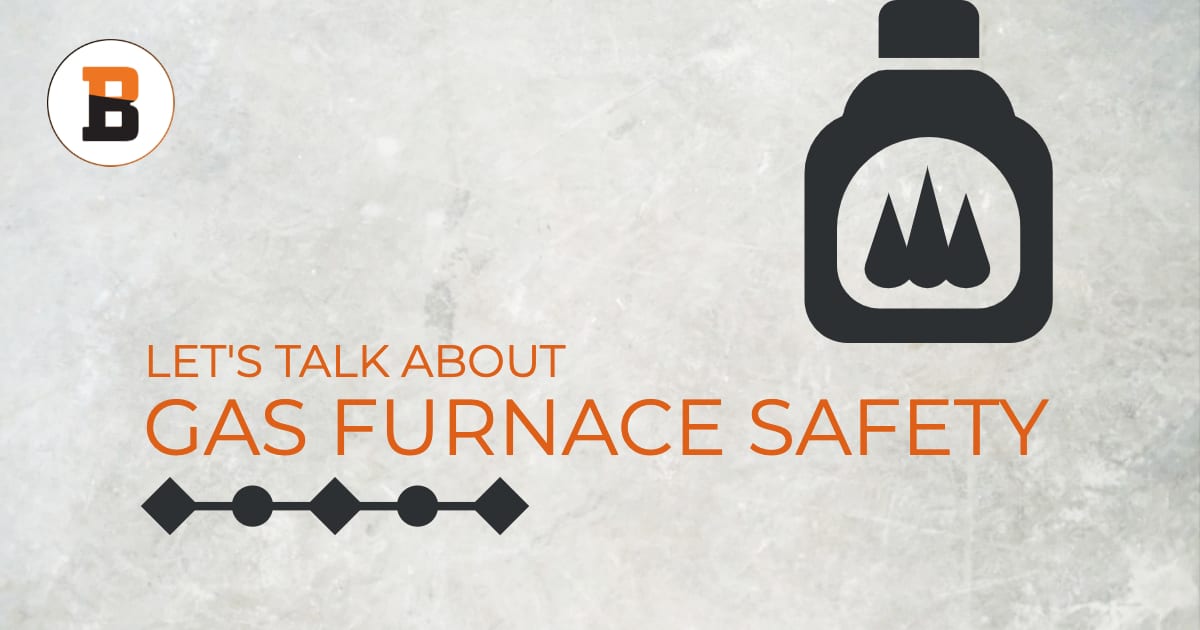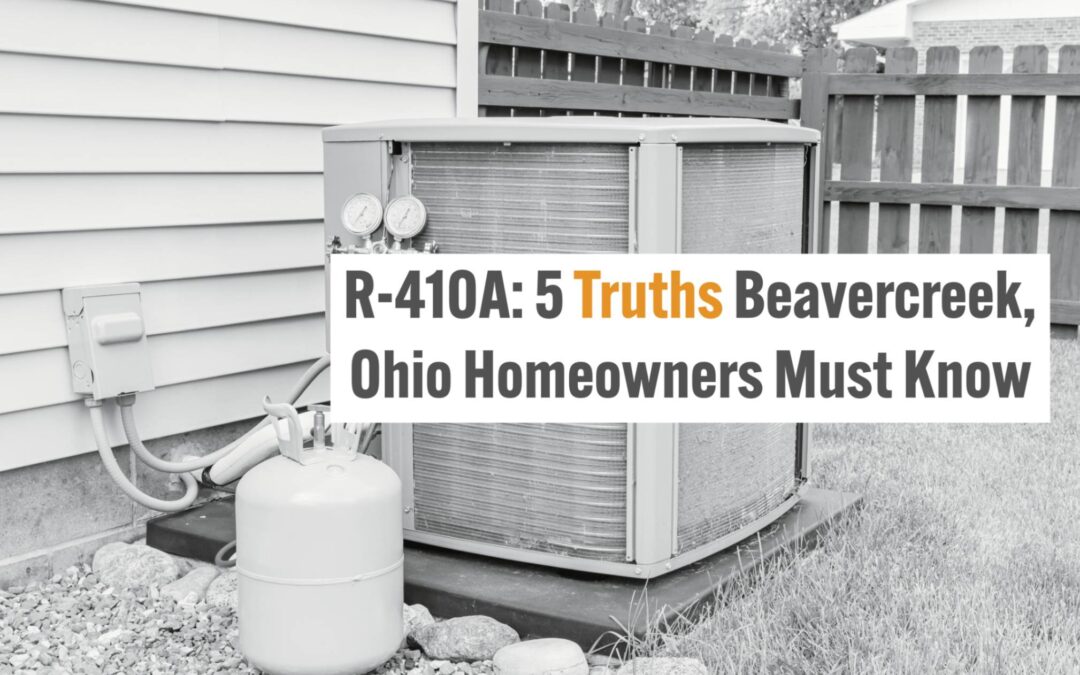Natural Gas… It’s efficient. It’s affordable. It’s our planet’s cleanest fossil fuel, used to heat more than half of American homes. Over the last century, natural gas has become a luxury in American life. Whether it be your stove, your dryer, your water heater, or like most Americans, your furnace, chances are one of your home appliances use natural gas.
However, with it being the number two cause of house fires in the country, second only to cooking, heat can quickly turn to havoc if you don’t mind some simple rules. We at Beavercreek Heating & Cooling compiled the following list of gas furnace safety tips.
1. KEEP YOUR DISTANCE
As a rule, the least amount of space around a furnace should be about two feet. Anything remotely flammable should be stored even farther away. Flammable items include things like boxes, lint, dust, papers, paint, rags, clothing, and more. You can use a vacuum cleaner to extract lint and dust from your furnace area. This should be done at least once per month to avoid any buildup. Seal any liquids in the room airtight. Strive to avoid having any flammable chemicals in that same room. And, as a rule, your furnace room should be a child-free zone. Furnace fire safety begins with a keen eye, so always look for the unseen dangers that could be sitting right beside your furnace.
2. REPLACE AIR FILTERS
It’s easy to overlook the need to change your furnace filters. However, it’s also risky. Not only does it diminish the quality of air in your home, but also it forces your furnace to work harder, which increases energy costs. To avoid unnecessary strain on your system that could cause additional problems down the road, be sure to replace your furnace’s filter at least every one to three months. Throughout the winter months, you might want to increase the rotation to evade the risk of a breakdown, which no one wants to deal with during the cold months of winter.
3. INVEST IN DETECTORS & EXTINGUISHERS
Heat is a wonderful thing during winter — that is unless it is the result of a furnace fire. To protect your family from the risks of a house fire, guarantee that smoke detectors and fire extinguishers are in working status. Put them in the same room as your furnace. Also, be sure to replace your detector’s batteries on a seasonal basis. The same goes for carbon monoxide detectors. A malfunctioning furnace can discharge dangerous carbon monoxide, so it’s important to have a fully-charged detector for that closeby as well. Carbon monoxide is an odor-free gas, so never rely on your sense of smell to detect problems near the furnace. Natural gas, on the other hand, has a rotten egg smell added to it for detection purposes. Be sure to know the signs of a leak and of poisoning, have emergency evacuation plans, and know where your master gas shut-off valve is. If you smell gas, do not turn on any lights or do anything that could spark it.
4. ASSURE AIRFLOW
When snow accumulates, it can prompt your gas furnace to shut down. That’s because the snow can block two of the most important parts of your home comfort system — the exterior air intake and exhaust from your gas furnace. The best way to keep air moving smoothly throughout your home is to perform a visual examination of these areas after a notable snowfall to look for any obstructions. Clearing out these areas when your furnace stalls will result in less stress on the system and extend its service life. Also, make sure at least 80 percent of registers in your home are open so air can flow freely inside.
5. DON’T SKIMP ON THE MAINTENANCE
When it comes to furnaces, it’ll always save you money to be more proactive than reactive. Don’t skimp on the maintenance. Have a professional inspect your furnace annually for all these reasons and more. Because when something goes awry and a furnace breaks down, a repair or replacement is no longer an option. It’s an expensive necessity. And no one wants to deal with that in the cold of winter. Proper maintenance makes sure your furnace will function properly when temperatures plummet.
Gas furnaces are machines and machines can break down and cause real harm without the right precautions.
For an appointment with one of our friendly service technicians, call Beavercreek Heating & Cooling at 937-708-8527 today or schedule an appointment now online at www.beavercreekheatingandcooling.com/schedule-now/.







